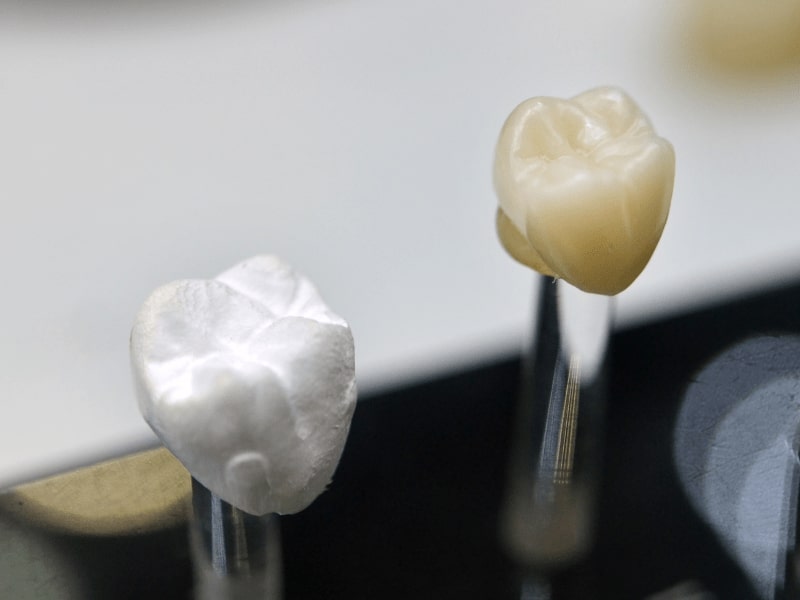Are you Experiencing Sensitive Teeth?
Have you ever taken a sip of your hot morning coffee or tea then grimaced as your teeth began to hurt? Or maybe at some point you stopped putting ice in your water glass or stopped eating ice cream to avoid aching teeth from the cold?
This kind of sensitivity to cold or hot foods and beverages can be frustrating and may even impact your quality of life. There are several dental conditions that can cause your teeth to become sensitive.
If you are experiencing this problem, it is important to identify its underlying cause with the help of your dentist. Keep in mind that the pain that is felt by any individual can range from mild and barely noticeable (a minor annoyance) to severe (requiring attention as soon as possible).
Root Canals
The type and severity of the pain can be a clue to the underlying cause. Anyone who has ever needed a root canal has probably been in the position of having to abstain from certain drinks to avoid the strong, throbbing ache of the jaw or upper teeth that they trigger.
The tooth sensitivity in this scenario is from exposure of the nerves in the dental pulp, which is the living tissue in the center of the tooth.
Wear in your Enamel
Mild tooth sensitivity can be caused by minor defects or scratches in the enamel—the outer lining of the tooth, from recession of gums leading to exposure of the tooth root, or from loose dental fillings. There doesn’t need to be direct exposure of the nerves in the dental pulp—such as from a broken tooth or cavity—to cause sensitivity.
That is because directly underneath the enamel is a layer called dentin that contains numerous tiny tubes that lead into the pulp; any hot or cold substance that makes it past the enamel has a direct route to the nerves inside the tooth.
Cavities or Broken Teeth
Severe tooth sensitivity shouldn’t be ignored, and professional attention should be sought since it is indicative of a serious dental condition. Dental caries (cavities) and damaged or broken teeth can be treated, which should alleviate the symptoms.
While it may be tempting to ignore or delay treatment for more mild tooth sensitivity, it is prudent to seek care because the treatment can slow or reverse progression of the underlying condition.
Home Dental Remedies
There are also many steps that you can take on your own. To prevent gum recession and damage to the enamel, use a soft-bristled tooth brush and take care to brush gently along the gum line. Use toothpaste for sensitive teeth, or at the very least use toothpaste that contains fluoride. You can even apply fluoridated toothpaste to the teeth using a finger or cotton swab, and your dentist may also recommend a toothpaste that contains a higher concentration of fluoride.
Most importantly, practice good dental hygiene consisting of brushing and flossing daily, with visits to your dentist every six months; it is best to identify problems with your teeth early before symptoms develop.
YOUR ANCHORAGE DENTIST
Our Anchorage dentists will provide the absolute best dental care at prices you can afford.
CALL NOW: 1(907) 313-1868







